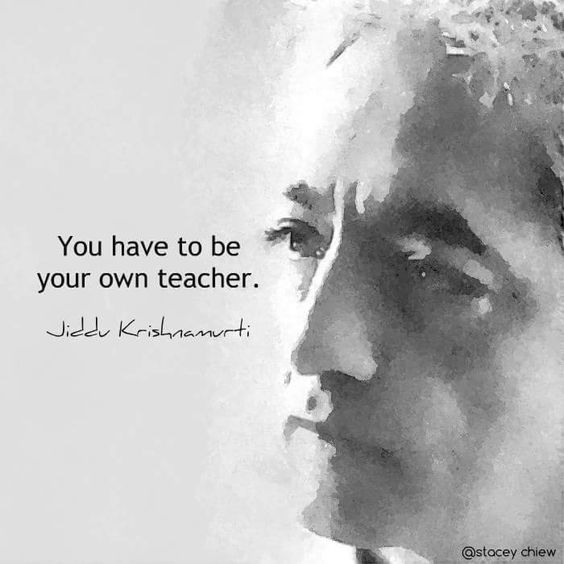Parker Palmer’s quote, “The courage to teach is the courage to keep one’s heart open in those very moments when the heart is asked to hold more than it is able so that teacher and students and subject can be woven into the fabric of community that learning, and living, require,” inspires many thoughts for me. The best teachers I have known have had heart and guts, shown their vulnerability and sincerity openly, have been confident and rooted in their inner selves, have displayed passion and unbridled enthusiasm for their subject and their teaching, and have lived and breathed their craft. They have given so much of their hearts to the craft and the students that it seems they could give no more, that they seemed to be superhuman, and yet it was because they were so deeply human. I think that Parker Palmer’s quote reveals how much heart and humanity go into teaching. We don’t just convey information about our subjects when we teach. Compassion, fierce determination and dedication, and building deep connections have been integral parts of my best teachers’ personas.
As a high school student, a music teacher I had never met before reached out to me during an audition and offered me free viola lessons, taking me under his wing even though he had no need or obligation to do so. What was it about my playing that caught his attention? Why did he choose me? “I’d like you to be my student,” he requested after I had finished playing. It usually works the other way around. The student asks the teacher to teach them. The teacher checks their schedule, sees if they have enough space in their studio, then asks to see the money after you register for your first lesson. The second thing Mr. B said to me after I agreed to be his student was, “Don’t even think about taking out your checkbook. These lessons are free. Your first lesson will be on October 6th.” I knew that this was something rare, special, incredibly uncommon. The busiest orchestral player, Hollywood studio musician, college professor, and private teacher in town was asking me to be his student. He had no time in his schedule and no space in his studio, but he asked to teach me anyway. Eventually, because of his inspiration and generosity, I became a music major and his full-time music student at the university. If I had never met him, I never would have considered it. Sometimes the people we meet change the course of our lives. I know it’s true for me. When I asked Mr. B years later why he decided to offer me the gift of lessons, he replied, “You had such talent, such a strong musical voice. A voice that was fighting to be heard no matter what. You had things you needed to say with music. But limitations, lack of technical tools, and lack of resources were holding you back. You were so determined and so musical. I knew I had to help you set your artistry free and help you gain the technique to fortify your musical voice. I knew I had to be your teacher.” That’s compassion enacted through teaching. No doubt. My teacher saw the musical voice I already had and helped me to build on it and strengthen it. Make it strong enough that it could be heard clearly every time I spoke it. Make it reliable enough that it would never fail me in performance. A great teacher acknowledges the creative voice you already have inside you and helps you harness it and make it stronger, helps you transition from novice to artist through trust, belief, and apprenticeship. That’s powerful teaching. That’s what helped me become who I am today.

